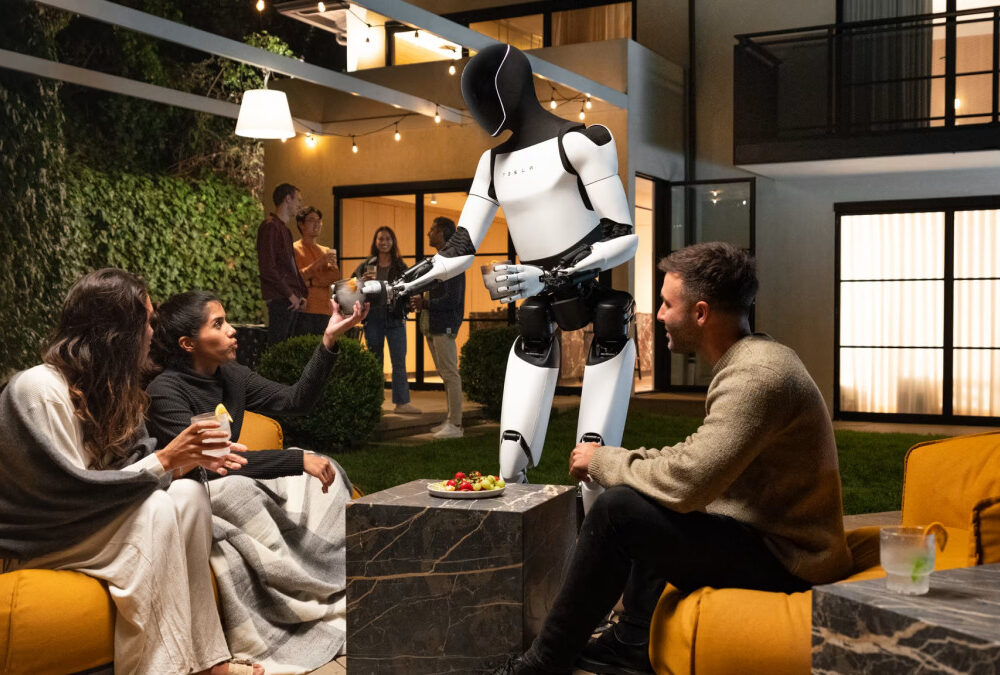Community, Leadership, Experimentation, Diversity, & Education
Pittsburgh Arts, Regional Theatre, New Work, Producing, Copyright, Labor Unions,
New Products, Coping Skills, J-O-Bs...
Theatre industry news, University & School of Drama Announcements, plus occasional course support for
Carnegie Mellon School of Drama Faculty, Staff, Students, and Alumni.
CMU School of Drama
Tuesday, October 22, 2024
Reports: Tesla’s prototype Optimus robots were controlled by humans
Ars Technica: After Elon Musk provided his "long-term" vision for autonomous, humanoid robots at last week's "We, Robot" event, we expressed some skepticism about the autonomy of the Optimus prototypes sent out for a post-event mingle with the assembled, partying humans. Now, there's been a raft of confirmation that human teleoperators were indeed puppeting the robot prototypes for much of the night.
Subscribe to:
Post Comments (Atom)

2 comments:
Why is this real. What am I even reading about right now. Elon Musk is basically a child: playing with his toys and being cagey about (or straight up making up) what they’re capable of. While it’s great that technology is getting more advanced, it’s just baffling to me that this is something we’re pouring resources into rather than the many desperate problems in society that require solutions and aid. I just really don’t understand the hype about creating humanoid robots and investing in AI, especially when it is directly at the expense of actual human beings. It’s also just a bad idea to incorrectly portray what your invention is capable of and what’s actually happening. It seems like Musk was definitely trying to misdirect the audience and make it seem like the robots are past the point of remote control, even if it was by a lie of omission.
I’m not surprised, but this is sad. Elon Musk is a questionable man who does a lot of questionable things - including this example. This is not how AI is meant to be used, and frankly, it’s barely AI. This is a silly demonstration of Musk’s ego, revealing the lack of real progress in the AI world and highlighting exactly how AI can harm or corrupt real people. And of course, Musk refuses to admit his glaring error. (Doesn’t this sound familiar?) I particularly despise the lack of transparency here - to have the bots deflect from direct questions in the same way Musk himself is, is deplorable. He and his company could have been so good for so much - for space exploration, for scientific discovery, for technological advancement. It’s turning out to be nothing more than a thin veneer of what could be.
Post a Comment